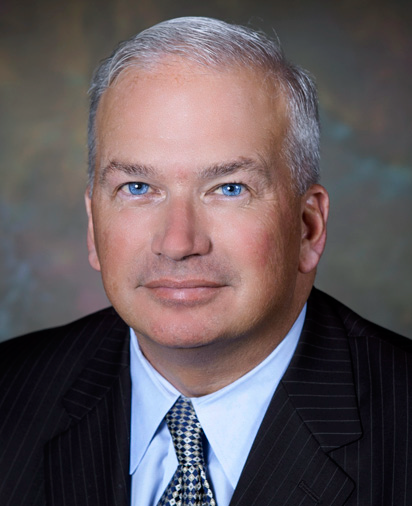Big Ag Wants High Capacity Wells
$152,000 campaign donations, $183,000 lobbying by potato, vegetable growers.
This group lobbies on agriculture, environmental, tax, and other state policy to benefit potato and vegetable growers, including a key industry goal to loosen regulations on controversial high-capacity wells.
And like other effective lobbying and special interest groups, the Potato and Vegetable Growers also funnels campaign contributions to legislative and state candidates through a legal check-bundling outfit known as a conduit.
Last year, the group sharply increased its lobby spending and contribution activity to push the GOP-controlled legislature to take up proposals that affect high-capacity wells and other water-use issues. And shortly after the latest 2017-18 legislative session got underway, the group told its members in an email that it wants to “head off local activist pressure on county and town boards to prevent them from passing irrational resolutions or wiring letters to the legislature which could have a negative impact on our legislation efforts.”
But it appears the money and lobbying worked. Late last month, GOP Senate Majority Leader Scott Fitzgerald, of Juneau, introduced a bill that would let high-capacity well owners repair, replace, and transfer existing wells in land sales to new owners without a permit.
Large potato and vegetable growers doled out about $152,000 in individual and corporate campaign contributions to all legislative and statewide officeholders and candidates in 2016. Most of those contributions were made during the last six months of 2016, and more than half, about $78,500, came from nine of the Potato and Vegetable Growers Association’s officers and board of directors.
Most of the contributions to current legislators, about $126,300, went to Republicans, and $10,250 went to Democrats. Republicans control the Assembly and Senate by margins of 64-35 and 20-13, respectively.
Most of the corporate and individual contributions were targeted at the legislature’s four Democratic and Republican fundraising committees, which are used by legislative leaders to milk special interests for cash to spend on elections. Those corporate and individual contributions to the legislative fundraising committees totaled:
$46,300 to the Committee to Elect a Republican Senate;
$35,550 to the Republican Assembly Campaign Committee;
$4,900 to the Assembly Democratic Campaign Committee;
$4,850 to the State Senate Democratic Committee.
In addition to the $46,300 that the growers gave the Committee to Elect a Republican Senate, which is controlled by Fitzgerald, the GOP majority leader also received $4,000 in individual contributions through the Vegetable Growers conduit.
None of those bills were approved by the full legislature in 2016. But Republican Attorney General Brad Schimel issued a legal opinion last May that said the DNR exceeded its authority when it considered the cumulative effect that existing high-capacity wells have on lakes, rivers and groundwater when it considered whether to approve applications for new wells. Schimel’s opinion may mean bills to restrict DNR regulation of high-capacity wells are now no longer needed.
High-capacity wells pump 100,000 gallons or more of water per day, and are mostly used by large vegetable growers, so-called factory farms, food processors and frac sand mining and processing operations. Environmentalists and other critics say high-capacity wells can deplete groundwater, rivers, lakes and streams. In recent years, rivers and streams throughout Wisconsin have been shrinking or drying up during the summer.
Matthew Rothschild is executive director of the Wisconsin Democracy Campaign.
More about the SB 76
- The State of Politics: Governor’s Race Influences Budget - Steven Walters - Jun 5th, 2017
- Campaign Cash: Walker Signs High-Capacity Wells Bill - Wisconsin Democracy Campaign - Jun 3rd, 2017
- Rep. Considine responds to high capacity well vote - State Rep. Dave Considine - May 3rd, 2017
- High-capacity well bill’s passage ensures ongoing groundwater conflicts - Clean Wisconsin - May 2nd, 2017
- Representative Lisa Subeck’s Statement on Assembly Passage of SB 76 - State Rep. Lisa Subeck - May 2nd, 2017
- Op Ed: Water Bill Violates Constitution - State Sen. Mark Miller - Apr 30th, 2017
- SB 76 brings Grassroots groups together in defense of the waters of Wisconsin - Citizens' Water Coalition of Wisconsin - Apr 29th, 2017
- Senator Miller’s Statement on Privatizing Public Waters - State Sen. Mark Miller - Apr 5th, 2017
- Campaign Cash: Big Ag Wants High Capacity Wells - Matt Rothschild - Mar 2nd, 2017
- The State of Politics: Lawmakers Battle Over High Capacity Wells - Steven Walters - Jul 18th, 2016
Read more about SB 76 here
Campaign Cash
-
Outside Groups Spent Record $28.8 Million on State Supreme Court Race
 May 7th, 2023 by Erik Gunn
May 7th, 2023 by Erik Gunn
-
Top 20 Donors to State Political Parties
 Apr 4th, 2023 by Peter Cameron and Hina Suzuki
Apr 4th, 2023 by Peter Cameron and Hina Suzuki
-
$38 Million Spent on High Court Race
 Mar 29th, 2023 by Erik Gunn
Mar 29th, 2023 by Erik Gunn























We all know they’ll get want they want. The WI facists on the right are willing prostitutes for campaign cash since they legalized quidprquo.
As a conservationist, landscape advocate, and someone who understands water systems; I am in opposition to AB105. How can the average citizen voice their opinion on this bill? Is it only on March 15th at 9am at the State Capitol?